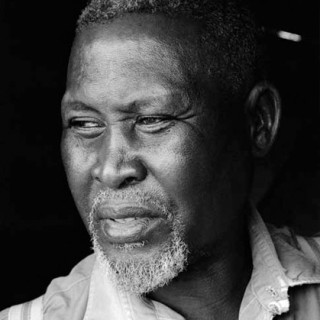Albert John Luthuli (1898–1967)

Albert John Mvumbi (Zulu: “Continuous Rain”) Luthuli was born in Rhodesia, where his father, John Bunyan Luthuli, a missionary interpreter, had gone from Zululand. After his father’s death, the 10-year-old Albert returned to South Africa and learned Zulu traditions and duties in the household of his uncle, the chief of Groutville, a community associated with an American Congregational mission in Natal’s sugar lands. Educated through his mother’s earnings as a washerwoman and by a scholarship, he graduated from the American Board Mission’s teacher-training college at Adams, near Durban, and became one of its first three African instructors. In 1927 Luthuli married Nokukhanya Bhengu, a teacher and granddaughter of a clan chief.
Luthuli was elected president of the Natal African National Congress. Since its founding in 1912 the ANC’s efforts to achieve human rights by deputation, petition, or mass protests had met with increasing repression. In 1952, stimulated by young black intellectuals, the ANC joined the South African Indian Congress in a countrywide campaign to defy what were deemed unjust laws; 8,500 men and women went voluntarily to prison. As a result of Luthuli’s leadership in Natal, the government demanded that he resign from the ANC or from chieftainship. He refused to do either, stating, “the road to freedom is via the cross.” The government deposed him. Not only did he continue to be affectionately regarded as “chief ” but his reputation spread. In that same year, 1952, the ANC elected him president general. Henceforth, between repeated bans (under the Suppression of Communism Act), he attended gatherings, visited towns, and toured the country to address mass meetings (despite a serious illness in 1954).
In December 1956 Luthuli and 155 others were dramatically rounded up and charged with high treason. His long trial failed to prove treason, a Communist conspiracy, or violence, and in 1957 he was released. During this time Luthuli’s quiet authority and his inspiration to others profoundly impressed distinguished foreign observers, leading to his nomination for the Nobel Prize. Nonwhite people responded in large numbers to his call for a stay-at-home strike in 1957; later, whites also began attending his mass meetings. In 1959 the government confined him to his rural neighbourhood and banned him from gatherings—this time for five years—for “promoting feelings of hostility” between the races.
In 1960, when police shot down Africans demonstrating against the pass laws at Sharpeville, Luthuli called for national mourning, and he himself burned his pass. (Too ill to serve the resulting prison sentence, he paid a fine.) The government outlawed the ANC and its rival offshoot, the Pan-Africanist Congress.
In December 1961 Luthuli was allowed to leave Groutville briefly when, with his wife, he flew to Oslo to receive the Nobel Prize. His acceptance address paid tribute to his people’s nonviolence and rejection of racism despite adverse treatment, and he noted how far from freedom they remained despite their long struggle. A week later, throughout South Africa, a sabotage group called the Spear of the Nation attacked installations; the policy of nonviolence had at last been abandoned, and Luthuli, back in enforced isolation, was an honoured elder statesman, dictating his autobiography and receiving only those visitors permitted by the police.
On July 21, 1967, as he made a habitual crossing of a railway bridge near his small farm, Chief Luthuli was struck by a train and died.

